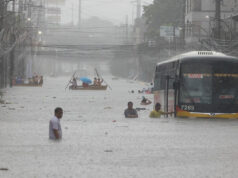
LEGAL FRAMEWORKS are missing to protect workers in the Philippines from emerging problems, such as job loss due to digitization, an academic said, citing that government structures are not effectively responding to such problems.
University of the Philippines (UP) School of Labor and Industrial Relations Dean Melissa R. Serrano cited five continuing problems for workers across Asia and the Pacific during the International Labour Organization’s (ILO) conference to reflect on how to shape the design and implementation of the new social contract at the national and regional levels.
Specifically, the UP academic cited digitization and automation provoking job loss; expansion of precarious work, including digital platform work; measures related to just transition but are realistically becoming unjust transition, leading to job loss; erosion of workers’ wages and job security; and continuing labor repression and curtailment of workers’ rights.
“My general observation is that in Asia, the responses appear uneven, contradictory, and incoherent, insofar as the interests of the people and the environment are concerned,” she added. “Thus, for many countries in Asia, the government’s tactics, including public policy, are not effectively responding to these changes and continuing challenges and problems.”
The conference seeks to create a platform for regional dialogue on the evolving social contract amid shifting economic, social, and environmental dynamics. It will focus on macroeconomic policies for sustainable economic development and the promotion of fundamental principles and rights at work, including collective bargaining and freedom of association.
“Trade unions have a crucial role to play in shaping the new social contract. However, to effectively play this role, trade unions need to adapt to the changing world of work and to strengthen their capacity to represent and protect workers in non-standard forms of employment,” said Maria Helena Andre, director of ILO’s Bureau for Workers’ Activities. — Chloe Mari A. Hufana



